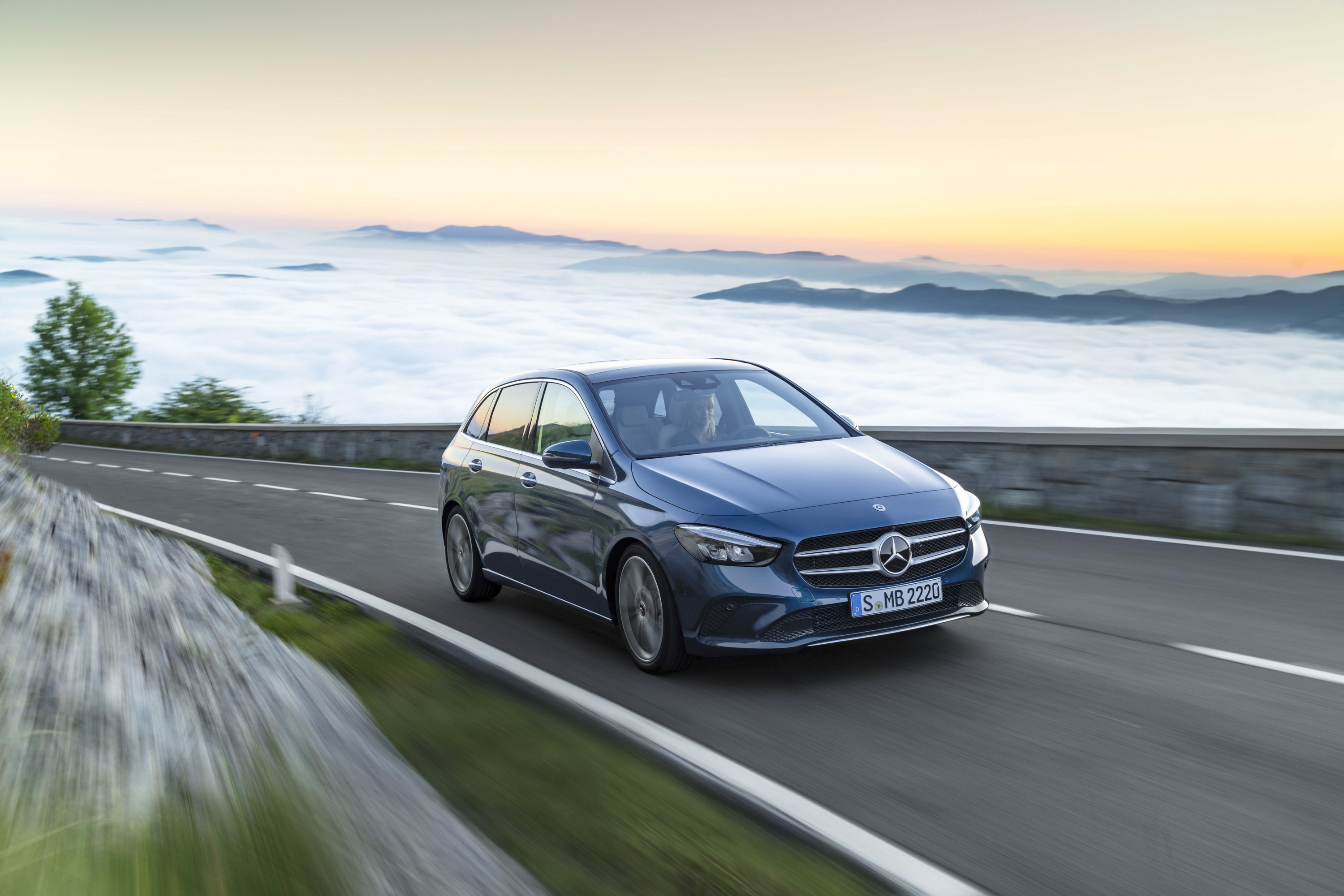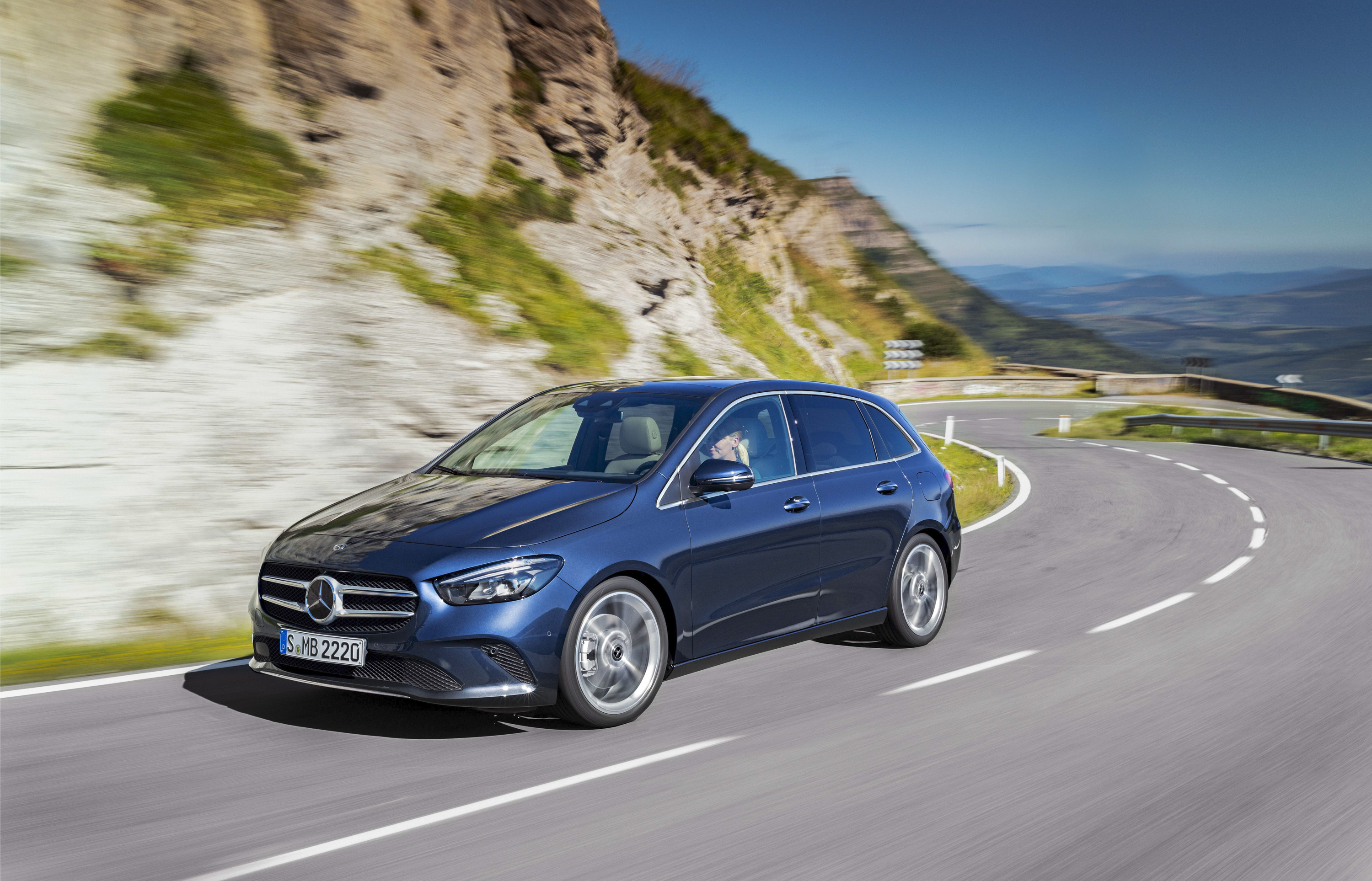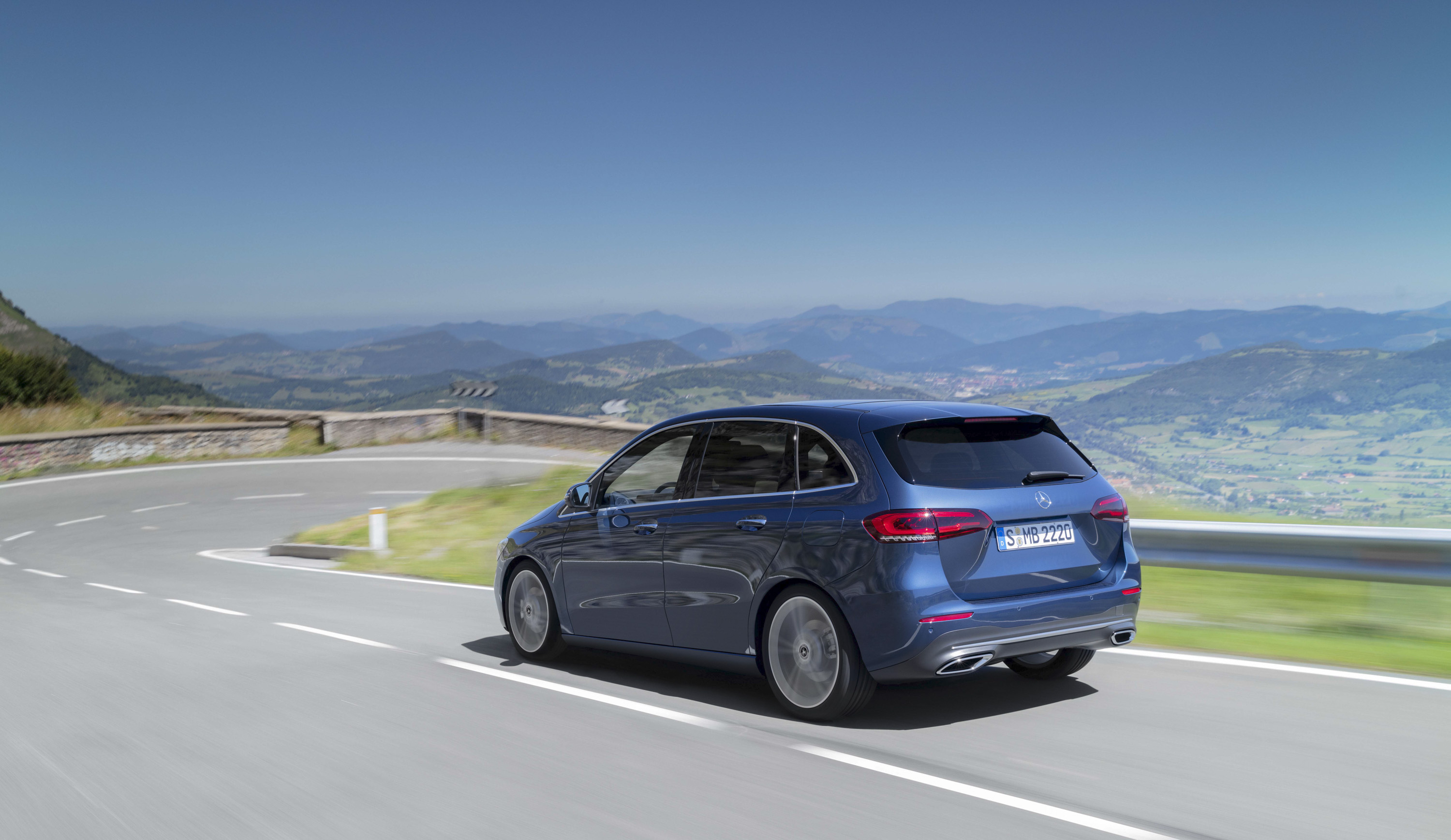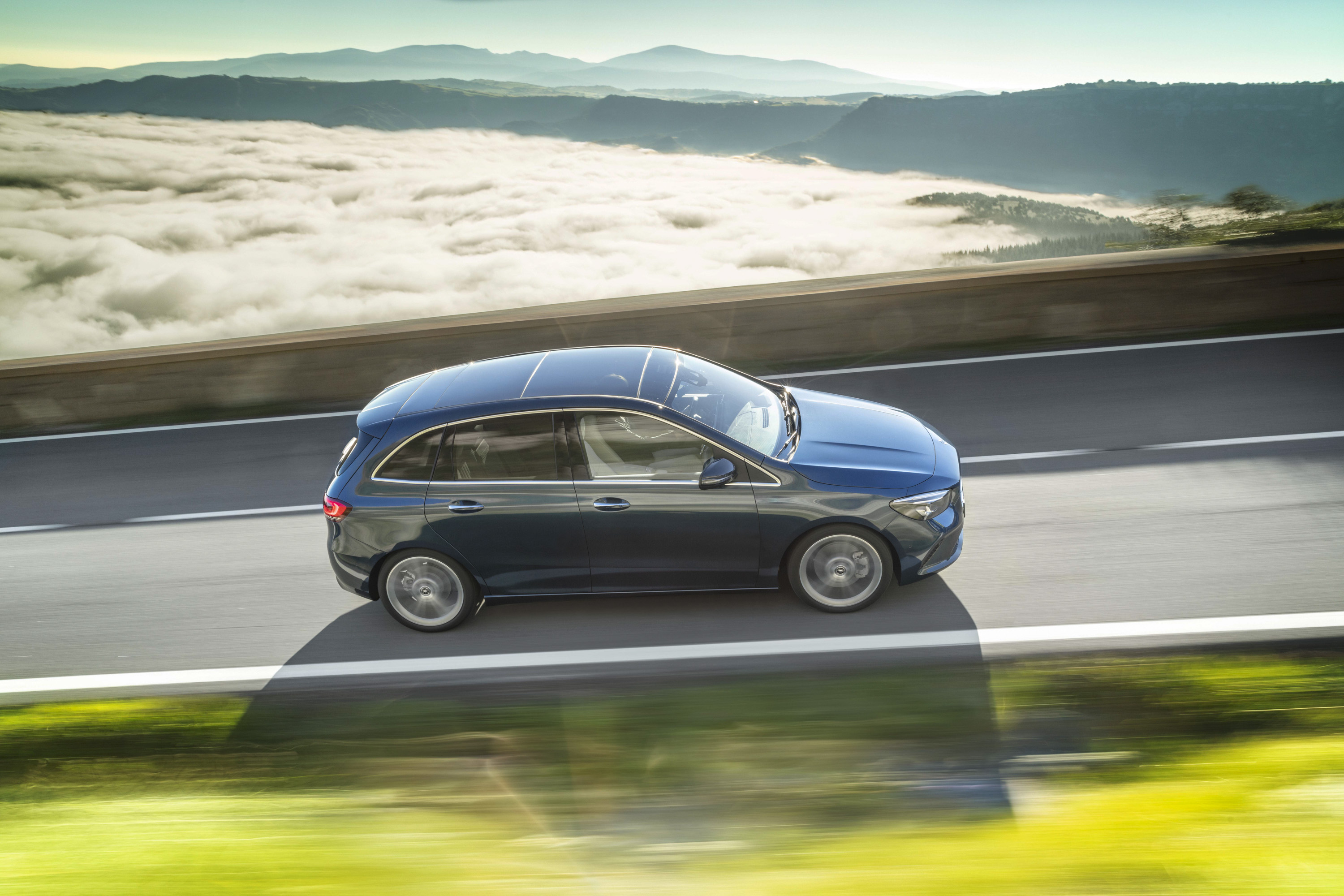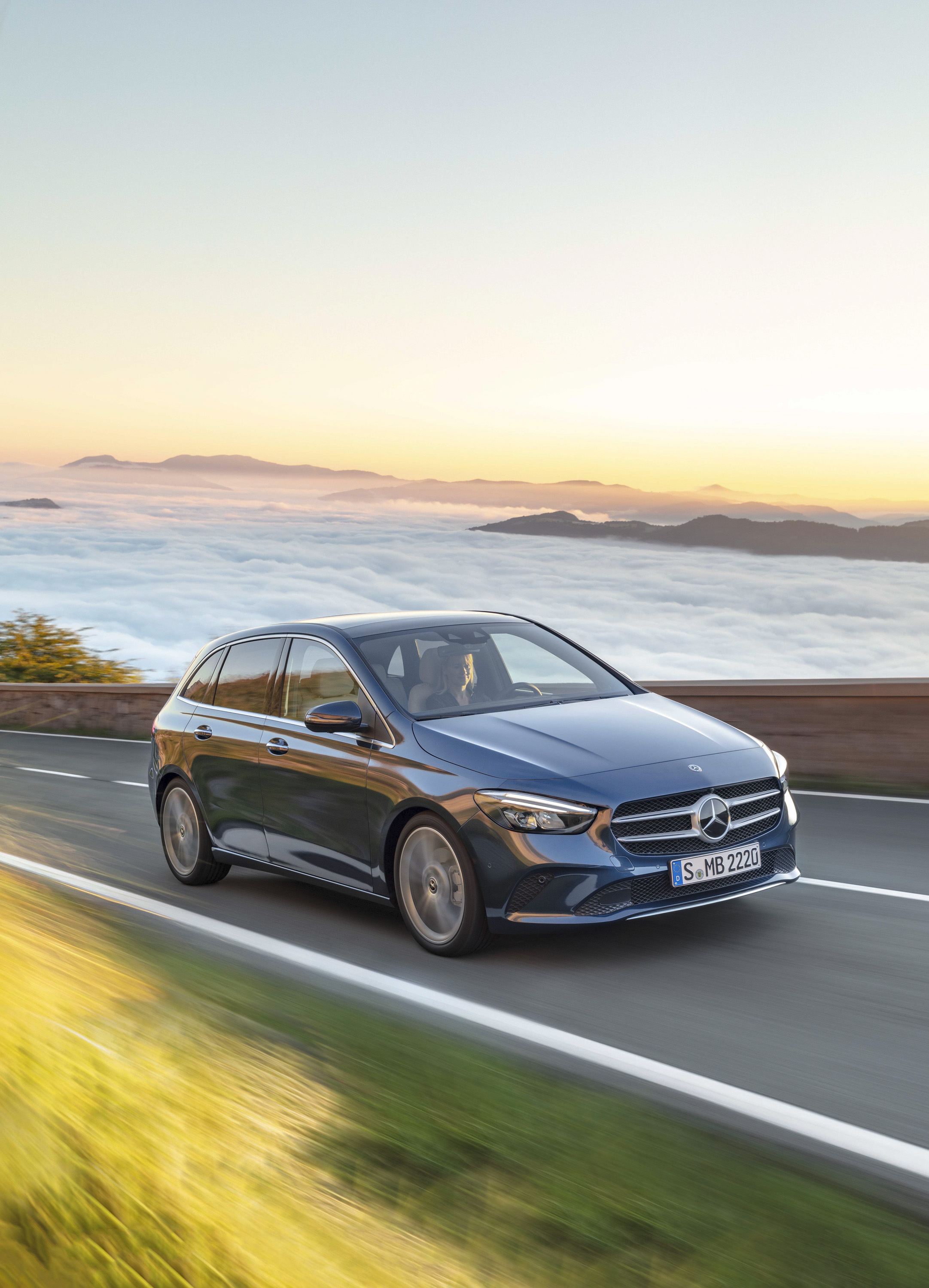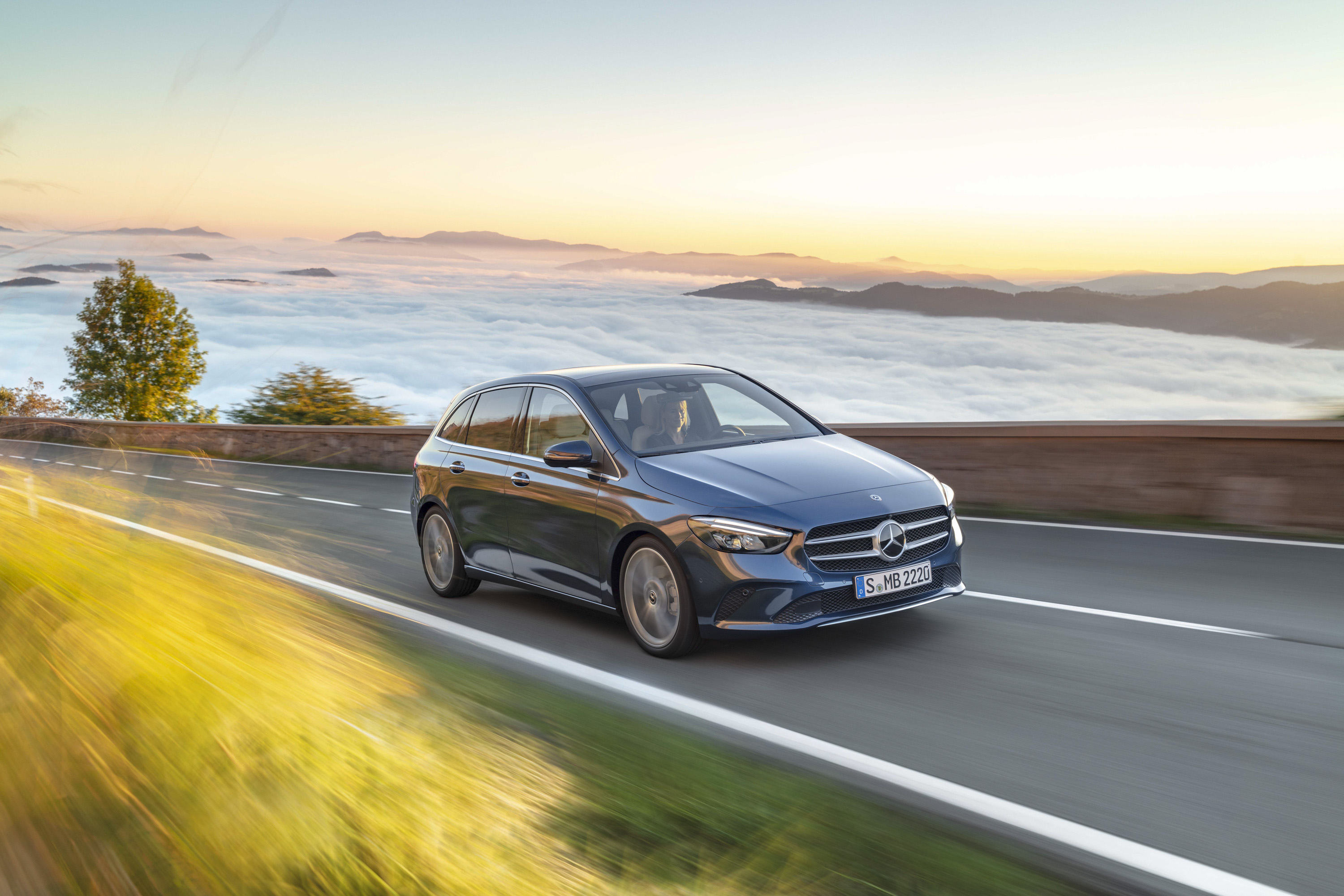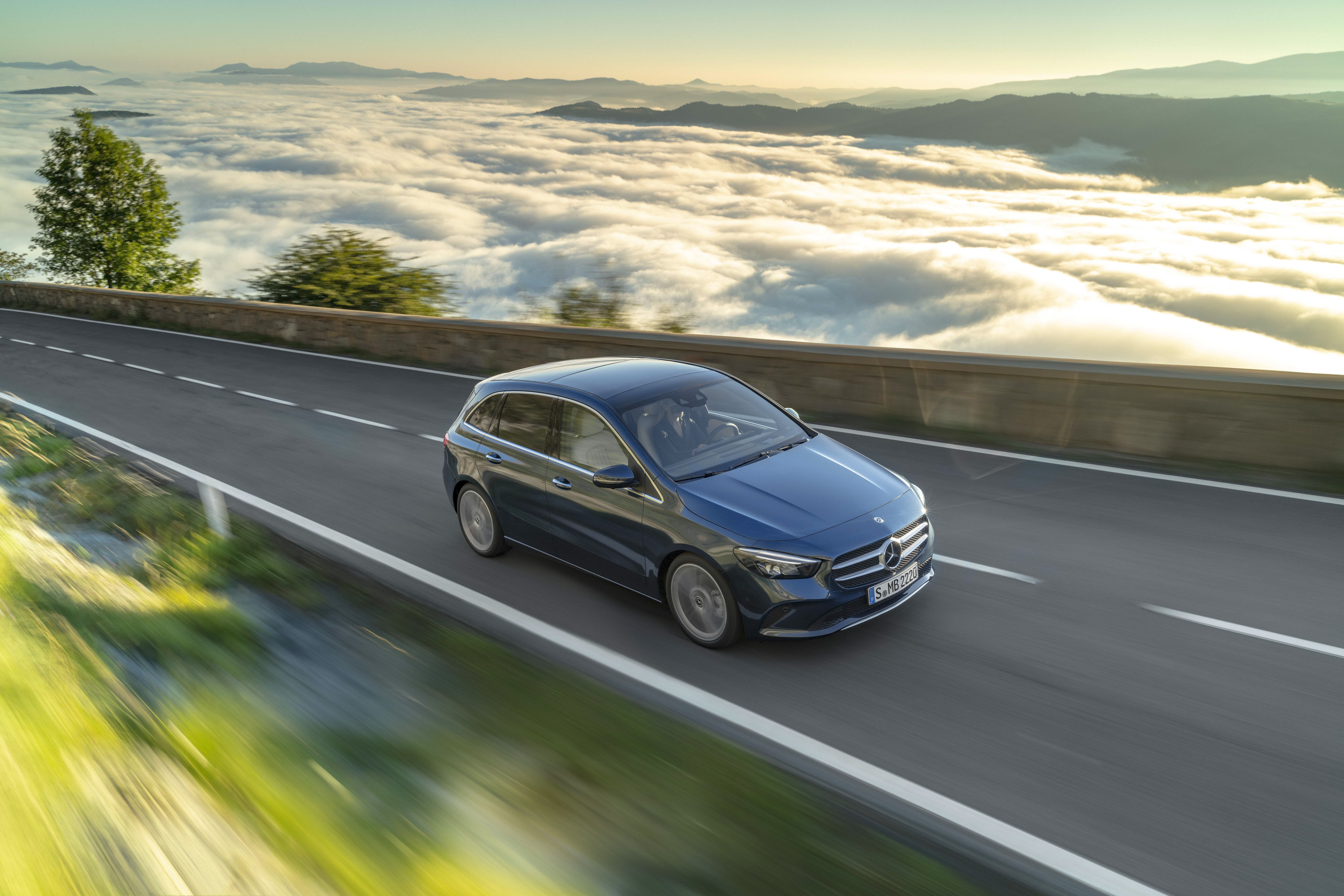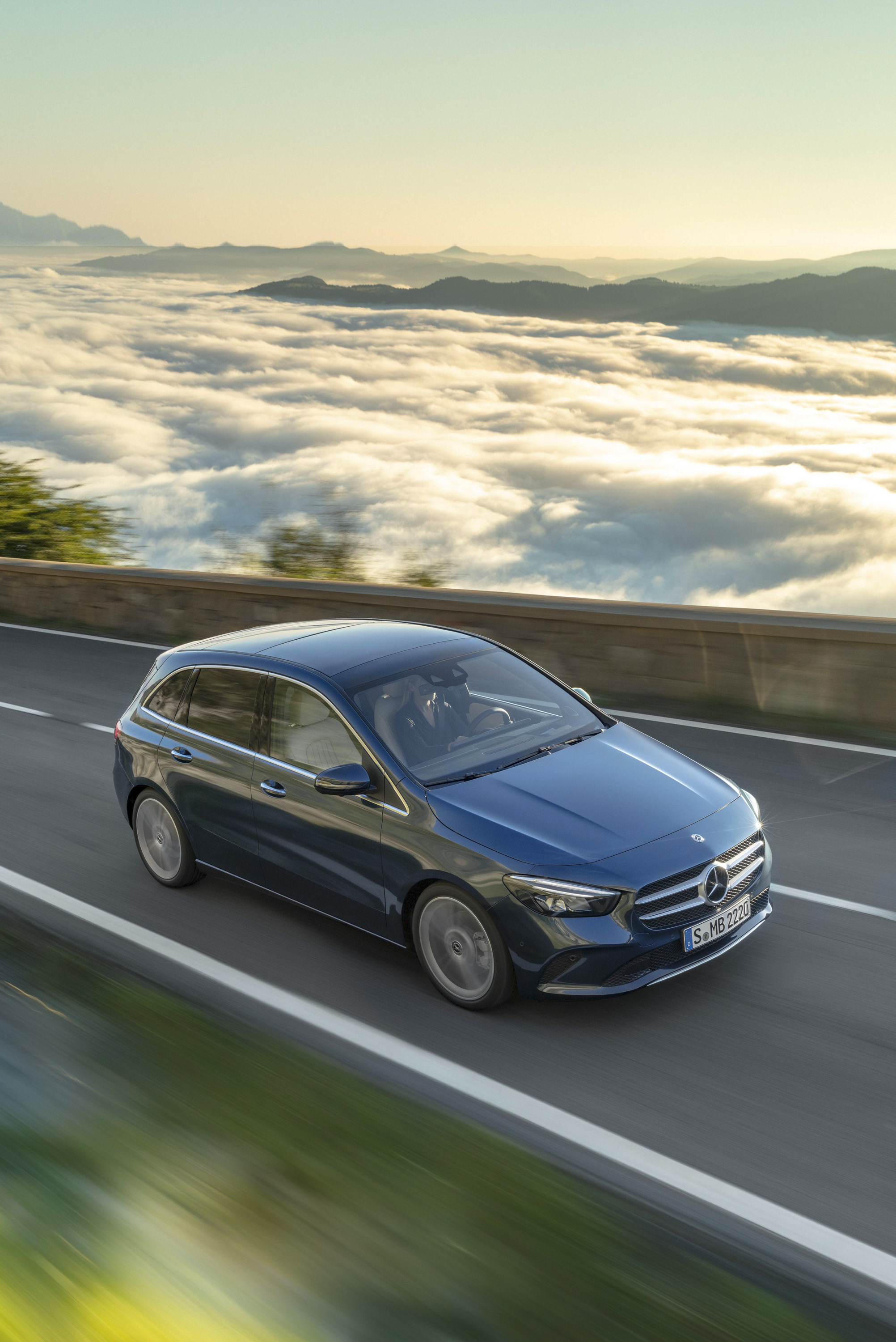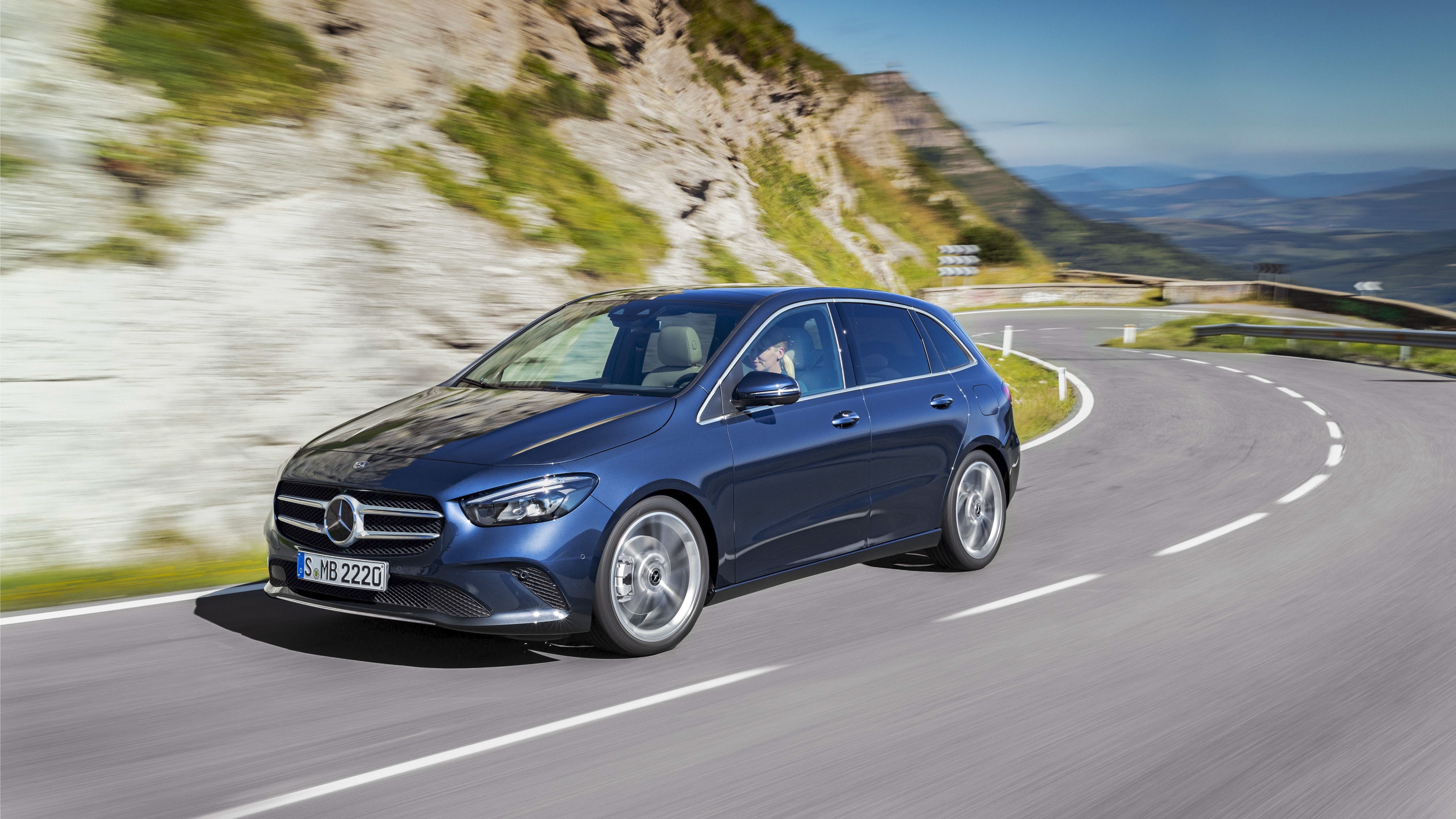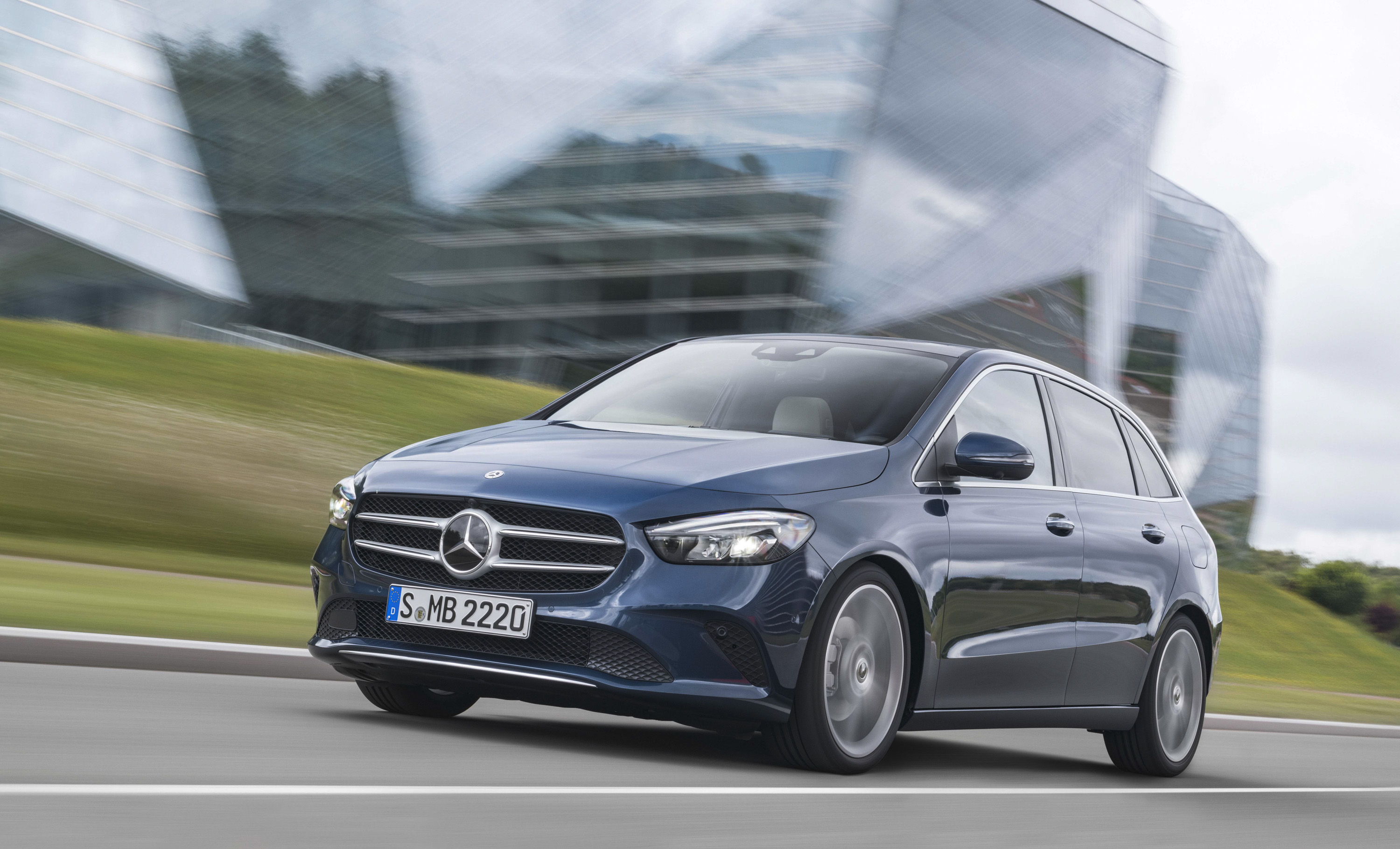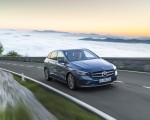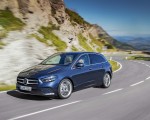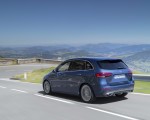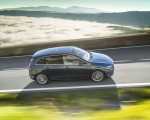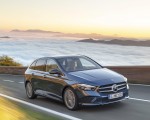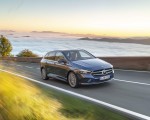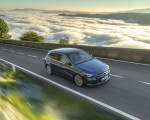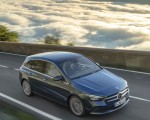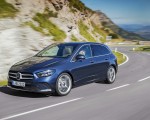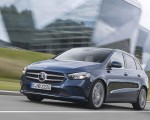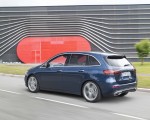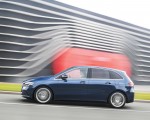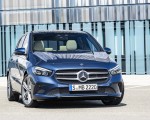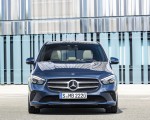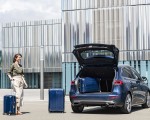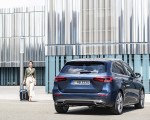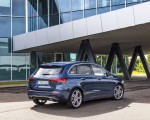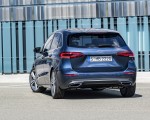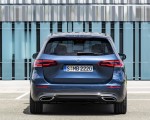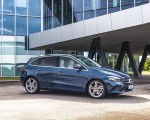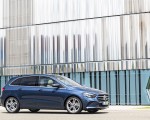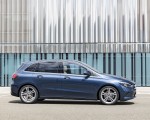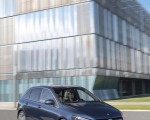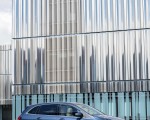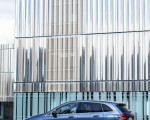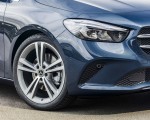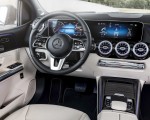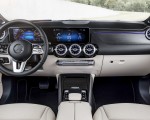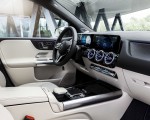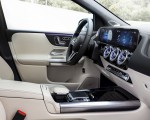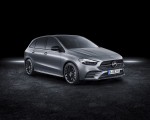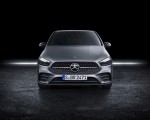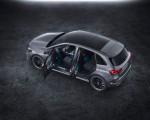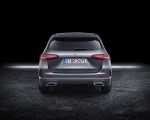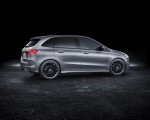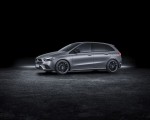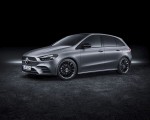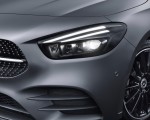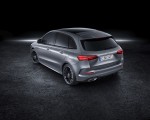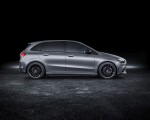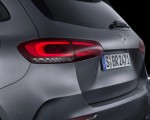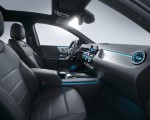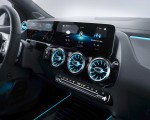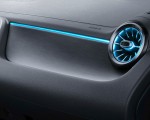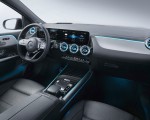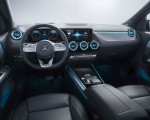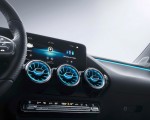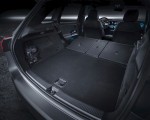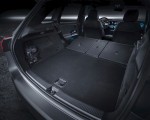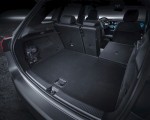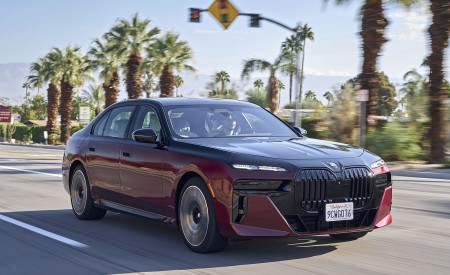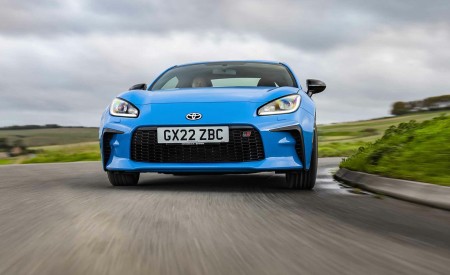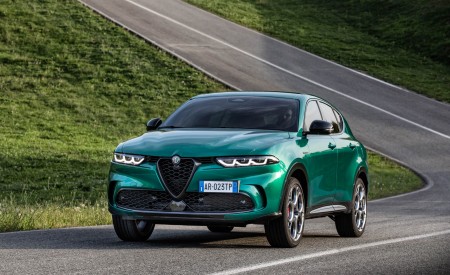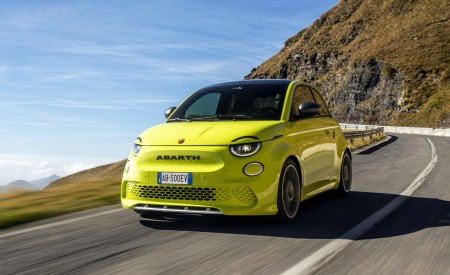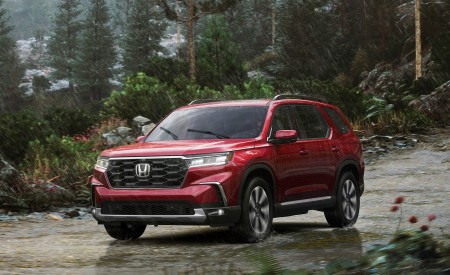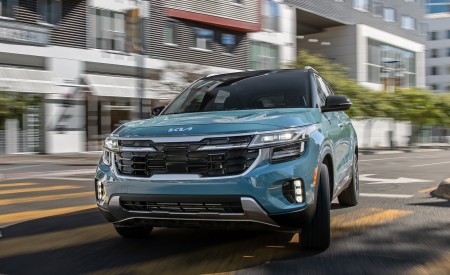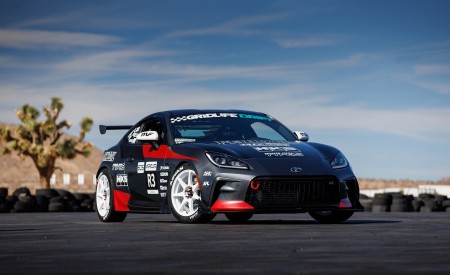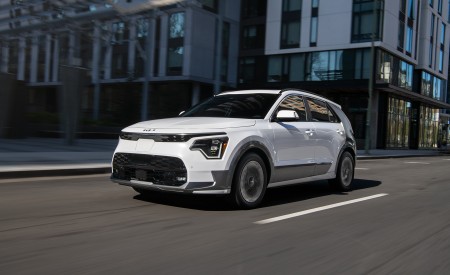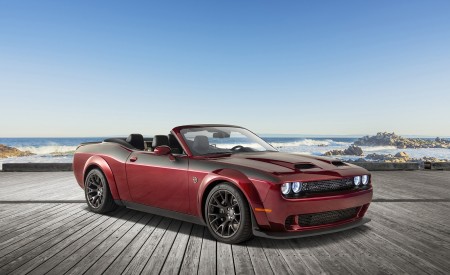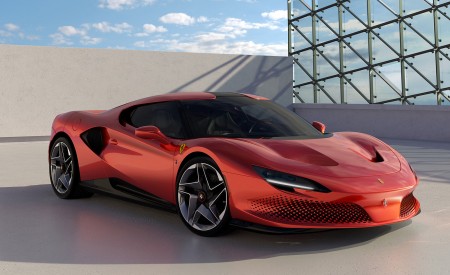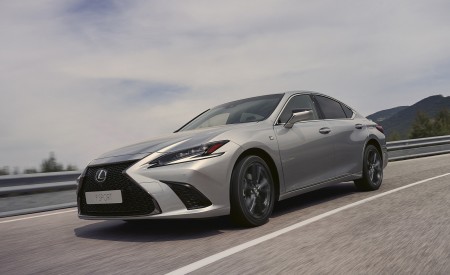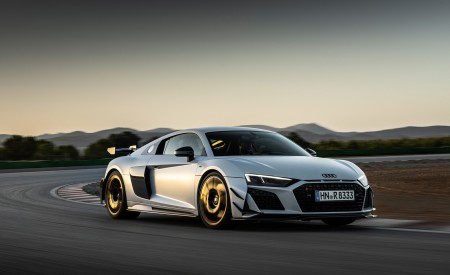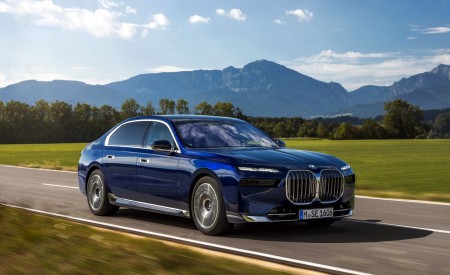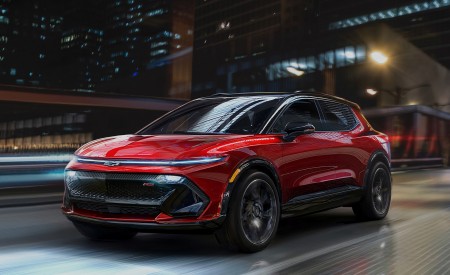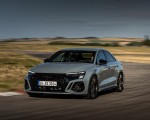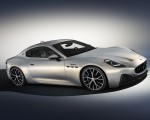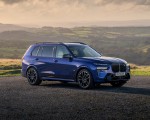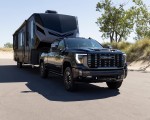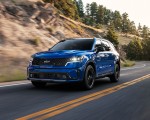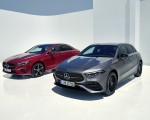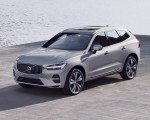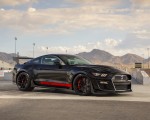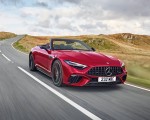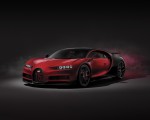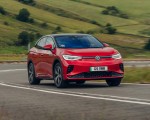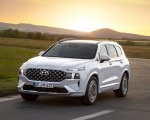2019 Mercedes-Benz B-Class
The new Mercedes-Benz B-Class puts the emphasis on sport with the Sports Tourer. It looks more dynamic than its predecessor and is more agile on the road while offering greater comfort. Its avant-garde interior makes for a unique feeling of space with the distinctive design of the instrument panel. One of the special features is a basic volume, which drops away towards the occupants and has cutouts in the area of the driver and front passenger. The intuitive user interface of the adaptive MBUX multimedia system is ground-breaking. Its strengths include brilliant graphics, “Hey Mercedes” voice control, a standard touch screen and functions such as MBUX Augmented Reality. When it comes to active safety, state-of-the-art driving assistance systems make the B-Class one of the segment leaders with functions carried over from the S-Class. In addition, the interior is now more spacious, while the engines are more efficient and cleaner. The eight-speed dual-clutch transmission makes its debut. Start of sales for the new B-Class is 3 December 2018, with delivery due to begin in February 2019.
“More practical than ever, more chic than ever,” is how Britta Seeger, Member of the Board of Management of Daimler AG, responsible for Mercedes‑Benz Cars Marketing & Sales, characterises the new B‑Class. “In our portfolio of compacts, it’s the perfect vehicle for the whole family. And MBUX – the new Mercedes‑Benz User Experience – provides also the B‑Class with an all-new customer experience with functions that were previously the reserve of the luxury class.”
“The latest derivative of the new generation of compact cars from Mercedes‑Benz, the B‑Class writes a further punchy chapter in the success story of the dynamic Mercedes‑Benz Sports Tourer,” says Gorden Wagener, Chief Design Officer of Daimler AG. “With its emotional yet purist design, the new B‑Class blends seamlessly into the design language of Sensual Purity.”
The designers’ brief was to make the new B-Class stand out visually from the world of minivans. That brief was accepted and executed, with the long wheelbase (2,729 mm) with short overhangs, slightly lowered roof line and larger, 16- to 19-inch wheels making for dynamic proportions. The relatively squat, progressive front end with flowing transition from bonnet to A‑pillar and on to the windscreen, along with the muscular shoulder of the body, underlines the sporty overall look.
The same is true of the low-profile headlamps, the inside of which is already high-grade, detailed and precisely designed on the basic model with H7 headlamps and LED daytime running lights. When ordered with LED headlamps or higher, the B-Class comes with its own daytime running light signature in the form of a double torch. The optional MULTIBEAM LED headlamps have an especially sporty look. They allow fast, electronically controlled adjustment of the headlamps to suit the current traffic conditions. This feature from the luxury class, which made its debut in the compact segment in the new A-Class, now produces striking looks and added safety also in the new B-Class.
At the back, the width of the vehicle is accentuated by two-part lamps, reflectors integrated in the bumper and a distinctive black bumper bottom section with diffuser look and chrome trim strip. The large roof spoiler, along with high-gloss black spoilers at the sides of the rear window, makes for improved aerodynamics while ensuring a sporty appearance.
The cd value of the new B-Class starts at 0.24 (predecessor: 0.25). The lower roof line further contributes to a best-in-class airflow due to the smaller frontal area of the car. In addition, the aerodynamics engineers have reduced the wind noise thanks to extensive detail work. The benefits: stress-free driving as well as the ability to engage in a relaxed conversation.
The improved seat geometry and lower belt line make for an even more generous feeling of space than in the previous model. The driver sits 90 millimetres higher than in an A-Class, thus enjoying an especially good all-round view – also thanks to optimised cross-sections of the roof pillars, which obscure less of the surroundings.
Interior design: revolution, the second
The interior of the B-Class is as avant-garde as the much-praised revolutionary interior architecture of the new A-Class, yet distinctive: while the instrument panel of the sister model is split into two horizontal basic bodies, that of the B-Class has a single basic volume, which drops away towards the occupants and has cutouts in the area of the driver and front passenger. The cutout in front of the driver houses the fully free-standing display unit, which comes in three different versions: with two 7-inch displays (17.78 cm), with one 7- and one 10.25-inch display (26 cm) and, in the Widescreen version, with two 10.25-inch displays. A head-up display is optionally available.
The five round air vents feature a high-grade turbine look with finely styled air ducts, inspired by the world of aviation. In the Style equipment line, the vent surround is colour-accentuated in the depth of the vent geometry to give the impression of an afterburner. The centre console with touch-based control and input system comes with a black panel look similar to the E-Class. The ambience lighting with 64 colours and ten colour worlds, unique in this segment, allows individual adjustments, even to suit the mood.
The seats offer a flatter and, therefore, more comfortable seating position as well as a larger adjustment range, which also increases the maximum headroom. There is also more space in the width: at 1,456 millimetres (plus 33 mm), the front elbow width now has the dimensions of a mid-range vehicle.
ENERGIZING seat kinetics: supports changes of posture
With seat climate control and multicontour seats with massage function, the new B-Class is available with optional extras that were previously reserved for vehicles from much higher segments. This opens the way to even better seating comfort.
The new ENERGIZING seat kinetics is particularly good for the back. It can support orthopaedically beneficial changes of posture by regularly making minute adjustments to the angle of the seat cushion and backrest. The innovation is available for the front seats in combination with all-electric seat adjustment with memory function.
Variable rear seats and optimised luggage compartment layout
The interior has been fine-tuned in many places: the improved passage over the centre tunnel in the rear makes for a more accessible middle seat. The rear seat backrest comes as standard with a 40:20:40 split. Depending on version, from mid-2019 it will be possible to slide the rear seats forward by 14 centimetres and to move the backrest into a more upright position to vary the capacity of the luggage compartment behind the rear seats between 455 and 705 litres. Although the capacity is roughly the same as in the previous model, the luggage compartment can be more efficiently used thanks to the improvements.
With the rear seat folded down and luggage loaded to the roof, the luggage compartment, which is flat thanks to the adjustable load compartment floor, can accommodate up to 1,540 litres behind the front seats. A folding backrest of the front passenger seat (optional extra, expected to be available from mid-2019) makes for an even longer loading length.
An EASY-PACK tailgate is optionally available. It can be conveniently opened or closed automatically at the press of a button, even by means of a foot movement in combination with optional HANDS-FREE ACCESS.
MBUX – Mercedes-Benz User Experience: unique experience
What goes for A also goes for B: the new B-Class is the second car model after the A-Class to feature the MBUX (Mercedes-Benz User Experience) multimedia system, which ushered in a new era with Mercedes me Connectivity. Its ability to learn thanks to Artificial Intelligence makes the system unique. MBUX is customisable and adapts to the user. It thus creates an emotional link between vehicle, driver and passengers.
Its other strengths include touch screen control as standard as well as, depending on equipment, a high-resolution Widescreen cockpit, navigation display with Augmented Reality technology plus intelligent voice control with natural speech recognition, which is activated by saying “Hey Mercedes”. The touch screen is part of the integrated MBUX touch control concept – a trio consisting of touch screen, touchpad on the centre console (optional) and touch controls on the steering wheel.
MBUX is a revolution of the user experience in the car. Emotively appealing showcasing features underline the comprehensibility of the control structure and thrill through brilliant 3-D maximum-resolution graphics which are rendered, i.e. calculated and displayed, in real time. A head-up display is also available.
New and improved Mercedes me connect services were launched with the new MBUX infotainment generation. These include navigation functions based on Car-to-X communication and Vehicle Tracking, which makes it easier to find the parked vehicle, as well as a notification function in the event of the parked vehicle being bumped or towed away.
The Mercedes me collection of apps can be placed as an icon on the screen in a user-friendly way, and can be freely sorted on the homepage like all other main applications. In addition, online content, such as current petrol station prices, can optionally be displayed. Online updating is a simple way of allowing new content to be made available in MBUX.
The new B-Class is already set up for private car sharing: Mercedes me allows the new compact car to be shared with friends and family members. Operation is simple and secure using the Mercedes me Car Sharing app.
The new Mercedes me connect services On-Street Prediction, Real-Time Information and Off-Street Information can save Mercedes-Benz drivers valuable time and reduce their stress levels while at the same time cutting their fuel consumption and emissions when searching for a parking space. The real-time information is based, among other things, on Mercedes-Benz vehicles that have just left a parking space or driven past potential parking spaces.
Intelligent Drive: functions from the S-Class
The new B-Class comes with driving assistance systems with cooperative driver support, thus providing one of the highest levels of active safety in this segment with functions from the S‑C lass. For the first time, the B-Class is able to drive semi-autonomously in certain situations. To do so, it employs improved camera and radar systems to anticipate the traffic up to 500 metres ahead while using map and navigation data for assistance functions. For example, Active Distance Assist DISTRONIC as part of the Driving Assistance package is able to support the driver in many route-specific situations, anticipatory and conveniently adjusting the speed, e.g. when approaching bends, junctions or roundabouts. Also on board are Active Emergency Stop Assist and intuitively understandable Active Lane Change Assist.
The new B-Class comes as standard with extended Active Brake Assist, which can help mitigate the severity of rear-end collisions with slower-moving, stopping or stationary vehicles ahead – and now even with crossing pedestrians or cyclists – or prevent them altogether.
The new B-Class was developed and tested at the new Vehicle Safety Technology Centre (TFS), too. The design of the vehicle structures with regard to geometry, material thickness, joining technique and material quality incorporates findings from real-world accidents. Many bodyshell components are made of high-strength and ultra-high-strength steel to obtain high strength with lowest possible weight, because the core of the safety design of the body is the highly stable passenger cell.
Driver and front passenger are provided with three-point seat belts with pyrotechnic belt tensioners and belt force limitation. In combination with the PRE-SAFE® system (optional extra), the front seats are additionally equipped with electrically reversible belt reel tensioners. Both of the outer rear seats are fitted with a seat belt with reel tensioner and belt force limiter. The new B‑Class comes as standard with airbags for driver and front passenger, kneebag for driver and windowbags and sidebags (combined thorax/pelvis bag). Rear sidebags are optionally available.
Double powertrain debut: new powerful two-litre diesel is Euro 6d compliant, new eight-speed dual-clutch transmission
Compared to its predecessor, the new B-Class is in all cases powered by new, efficient engines, all of which comply with the Euro 6d-TEMP limits. Making its debut is a transverse-mounted version of the OM 654 two-litre diesel with 110 kW and 140 kW, aluminium crankcase and stepped-bowl combustion process. Thanks to extended exhaust aftertreatment with an additional underfloor SCR catalyst, the B-Class with the OM 654q is the first compact model from Mercedes-Benz to be certified in accordance with the Euro 6d standard, which will become mandatory for new models only on 1.1.2020. The large diesel represents an addition to the four-cylinder diesel (OM 608) already known from the A-Class with 1.5-litre displacement, up to 85 kW and up to 260 Nm.
Also available are two four-cylinder petrol engines of the M 282 series with 1.33-litre displacement and 100 kW/120 kW. Innovations include cylinder management (in combination with 7G-DCT transmission), delta shape of the cylinder head and particle filter.
The new B-Class is initially available exclusively with dual-clutch transmissions. New here is the eight-speed 8G-DCT, which is used in combination with the larger diesel engine. Other new engines will follow, as will models with 4MATIC all-wheel drive. A 43-litre tank is installed as standard, while a 51-litre tank is optionally available, depending on the engine.
The following five engine variants will be available at the launch of the B‑Class:
- B 180 (100 kW/136 hp, 200 Nm); with 7G-DCT dual-clutch transmission (combined fuel consumption 5.6-5.4 l/100 km, combined CO2 emissions 128-124 g/km)1
- B 200 (120 kW/163 hp, 250 Nm); with 7G-DCT dual-clutch transmission (combined fuel consumption 5.6-5.4 l/100 km, combined CO2 emissions 129-124 g/km)1
- B 180 d (85 kW/116 hp, 260 Nm); with 7G-DCT dual-clutch transmission (combined fuel consumption 4.4-4.1 l/100 km, combined CO2 emissions 115-109 g/km)1
- B 200 d (110 kW/150 hp, 320 Nm); with 8G-DCT dual-clutch transmission (combined fuel consumption 5.4-4.2 l/100 km, combined CO2 emissions 119-112 g/km)2
- B 220 d (140 kW/190 hp, 400 Nm); with 8G-DCT dual-clutch transmission (combined fuel consumption 4.5-4.4 l/100 km, combined CO2 emissions 119-116 g/km).2
- [1]The stated fuel consumption and CO2 emission figures are provisional, were determined by the technical service for the certification process in accordance with the WLTP test procedure and correlated as NEDC figures. No EC type approval or certificate of conformity with official figures is yet available. There may be differences between the stated figures and the official figures.
- [2] The stated figures were determined in accordance with the prescribed measuring method. These are the “NEDC CO2 figures” according to Art. 2 No. 1 Implementing Regulation (EU) 2017/1153. The fuel consumption figures were calculated based on these figures.
The new OM 654q diesel engine: lighter, more powerful, cleaner
The transverse-mounted version of the latest premium diesel engine family makes its debut in the new B-Class. Despite its lower displacement – just under two litres – the around 16 percent lighter new diesel engine with 140 kW (190 hp) puts out 10 kW more than the previous engine. On the inside, the OM 654q offers efficiency-enhancing technological highlights such as steel pistons with stepped bowls in an aluminium block. The cylinder liners are coated using the further-improved NANOSLIDE® process.
With a cylinder spacing of just 90 mm instead of 94 mm, the new engine is more compact than its predecessor thus allowing the exhaust aftertreatment components to be installed directly on the engine, where the exhaust temperature is higher, making for more efficient aftertreatment. Thanks to further improved exhaust aftertreatment, the powerful four-cylinder from the modern OM 654 engine family already meets the Stage 2 RDE (Real Driving Emissions) standard coming into force from 2020, and is certified to Euro 6d. Even in demanding driving situations and under challenging environmental conditions, the B-Class remains within all the emissions limits.
This is achieved by additional selective catalytic reduction (SCR) with an ammonia slip catalyst (ASC) in the exhaust system of the B-Class. This allows a more generous dose of the reduction agent AdBlue, as any surpluses can be reduced and converted in the second SCR. These surpluses (ammonia slip) particularly occur during fast temperature changes in the exhaust tract, e.g. when moving from city traffic to the motorway.
Suspension: agile and comfortable
At least as agile as its predecessor while even more comfortable – that was the development brief handed to the suspension specialists for the new B-Class. Depending on the version, several options are available for the basic configuration, including a lowered comfort suspension and a suspension with active adaptive damping, which lets the driver control the damper tuning while driving using DYNAMIC SELECT. The system uses an electronic valve, the control of which additionally analyses the driving state and optimises the damping rate individually for each wheel.
In all versions of the new B-Class, the front wheels feature McPherson struts and forged-aluminium wishbones, to which are attached cast-aluminium steering knuckles. This makes the unsprung mass as low as possible in the interests of road-holding and comfort.
At the rear, the models with the entry-level engine variants come with a compound crank rear axle in the basic configuration. In combination with the more powerful engine variants or if the customer opts for one of the optional suspension systems, use is made of a sophisticated four-link rear axle, which is made extensively of aluminium to reduce the unsprung mass. The three wishbones and one trailing arm on each of the rear wheels are mounted on a subframe, which is isolated from the bodyshell by rubber bushings to reduce the transfer of vibration and noise from suspension to body. Single-tube shock absorbers and separate coil springs are used for both the four-link and the compound crank rear axle.
